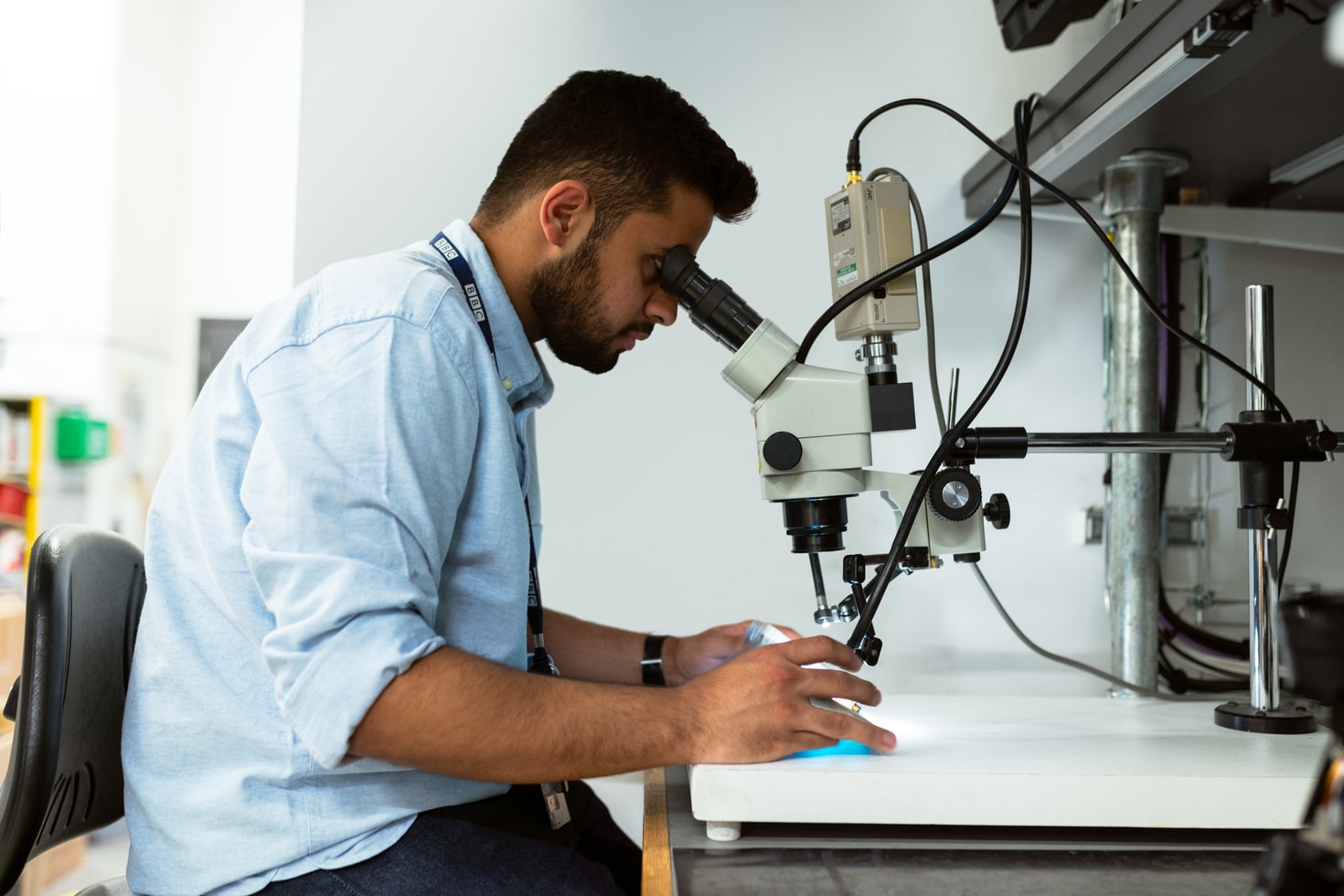A biomedical engineer blends principles of engineering and biology to develop life-changing medical solutions in healthcare, enhance patient care, and advance medical science. As one you get to design and create medical devices like medical imaging technology and collaborate on biological research to improve healthcare systems. If you are interested in pursuing this career, starting early with exposure to Math, Science, and Technology can help you gain the experience and skills required at a young age.
Highschool Preparation
Starting early by studying advanced placement classes in high school is a good first step to becoming a biomedical engineer. If you are interested in an engineering education, you need to study Science, Technology, Engineering and Mathematics subjects like:
- Calculus
- Health and Medical Sciences
- Chemistry
- Computer programming
- Physics
- Biology
Humanities courses are also advantageous for your biomedical engineering aspirations because you’ll need to be able to communicate effectively with your clients and colleagues. Studying English along with your communication skills will help you particularly when explaining complex concepts to non-STEM professionals using easy-to-understand language.
Taking advantage of engineering camps in the summer and talking to professionals in the field can enhance your biomedical engineering experience. Furthering your education in subjects that are relevant to your career goals by taking part in medicine or STEM-related extracurricular activities in high school can help prepare you to study biomedical engineering in college.
Earn a Degree in Biomedical Engineering
To benefit from the competitive salaries biomedical engineers receive, you need to obtain a biomedical engineering degree from a school like American International College that is accredited by the Accreditation Board for Engineering and Technology (ABET). The specific curriculum in your biomedical engineering course can carry from one institution to the next. However, in general, you can expect to study plenty of biomedical engineering coursework such as:
- Biomedical instrumentation
- Medical physiology
- Devices and elements of biomedical design
- Biomechanics
Seeking advice from your academic advisor as you study to attain your biomedical engineering degree can help you understand the field of specialization in the course so that you can pick the most suitable biomedical area for your career
Gain Volunteer or Intern Experience
Most employers seek prospects with real-world experience which you can gain through an internship or volunteer program. The Biomedical Engineering Society (BMES) offers you the opportunity to volunteer in the field while pursuing your degree as well as internship opportunities where you can gain work experience, build your skills, and expand your knowledge. Your chosen university or college may also offer internship programs for credit.
Obtain Engineering License
After acquiring your degree, you need to undertake two exams for two different licensing certificates before you can offer your biomedical engineering services to the community or the public. Earning your licenses shows your potential employers that you are fully qualified and enhances your chances of getting a high-income position.
Secure a Fundamentals of Engineering License
The Fundamentals of Engineering License(FE) is offered by the National Council of Examiners for Engineering and Surveying(NCEES) to test your knowledge of the Math and Science needed to complete most engineering work. You need to have completed your Biomedical Engineering degree from an accredited college before sitting for this exam. After acquiring your FE license, you can start gaining work experience in the field, which is typically required for a minimum of four years before you can sit for your next licensing exam.
Attain a Principles and Practice of Engineering License
After working for four years or more in your Biomedical Engineering, you qualify to sit for a Principles and Practice of Engineering (PE) license exam to test your competency. PE exams are offered in different specialties.
Network With Other Biomedical Engineers
If you don’t know anyone in the biomedical engineering field you can research and find a meet-up group or a professional organization of biomedical engineers and attend their gatherings. Make yourself known to these field professionals as a prospective biomedical engineer. You can also attend conferences, seminars, and workshops where you can access biomedical engineering-related resources and discuss with peers to help solve challenging engineering problems through collective brainstorming and to promote your skill development in the field.
Emerging technological advancements have the potential to be utilized in the medical field. For example, you may use 3D printing for medical applications such as building prosthetics for disabled patients in the biomedical engineering field. Such technological advancements make the job marketplace for biomedical engineers look favorable for the foreseeable future.
Endnote
As you maneuver through your biomedical engineering career, you must start building your network with other biomedical engineers as soon as possible. Early immersion in the field can help you foster a deep understanding of the career and increase your competitiveness in college admissions and scholarship.. Making yourself known to other industry specialists also helps further your education as you get to learn about new methods, discoveries, and best practices.



















